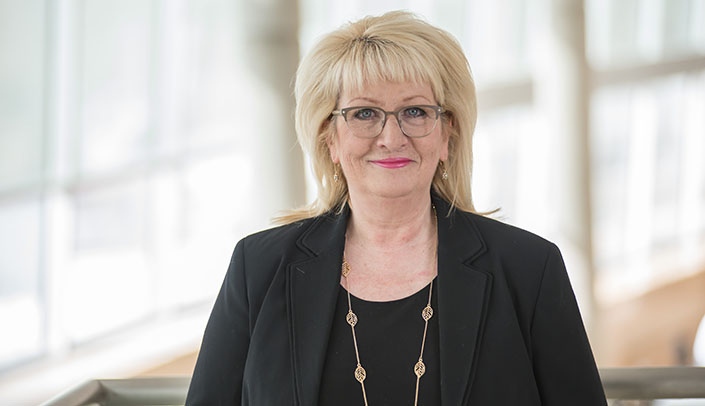The Medical Sciences Interdepartmental Area (MSIA) has unveiled two new subplans: Health Practice and Medical Education Research; and Biodefense and Health Security.
Health Practice and Medical Education Research
This subplan has two areas of interest: for students seeking to pursue a Ph.D. in emergency preparedness, a growing career field due to new accreditation requirements in the health care and public health sectors; and, to support the growing trend toward innovative approaches to health professions education, especially in the e-learning and simulation technology spheres.
“The opening of the Dr. Edwin G. & Dorothy Balbach Davis Global Center provides opportunities for students to explore and conduct research in the simulation learning field,” said Sharon Medcalf, Ph.D., director of the Center for Biosecurity, Biopreparedness, and Emerging Infectious Diseases at the College of Public Health.
Dr. Medcalf will serve as director of the subplan and co-led its creation with Laura Bilek, Ph.D., associate dean for research at the College of Allied Health Professions.
“Both scholarly areas need evidence-based research to eventually guide practice, and we are excited to follow the next generation of researchers as they advance these fields,” Dr. Medcalf said.
Biodefense and Health Security
Students enrolled in this subplan will engage in and learn processes and methodologies affiliated with the fundamental elements and scientific principles needed to thrive in the emerging global security areas related to defense against infectious disease. Two tracks are available to students:
- Biosecurity and biodefense science related to national security;
- Basic and clinical sciences related to global health.
“Many basic scientists do not receive formal training in methods for understanding global public health or national security applications of their work. The biodefense and health security students in our program will receive training in basic science research and the scientific principles of protecting civilian and military populations,” said Dr. Bilek, who is co-chair of MSIA’s program committee.
John-Martin Lowe, Ph.D., assistant vice chancellor for interprofessional health security training education and executive director of education for the Global Center for Health Security; and Joshua Santarpia, Ph.D., associate professor of pathology and microbiology, will oversee the subplan.
